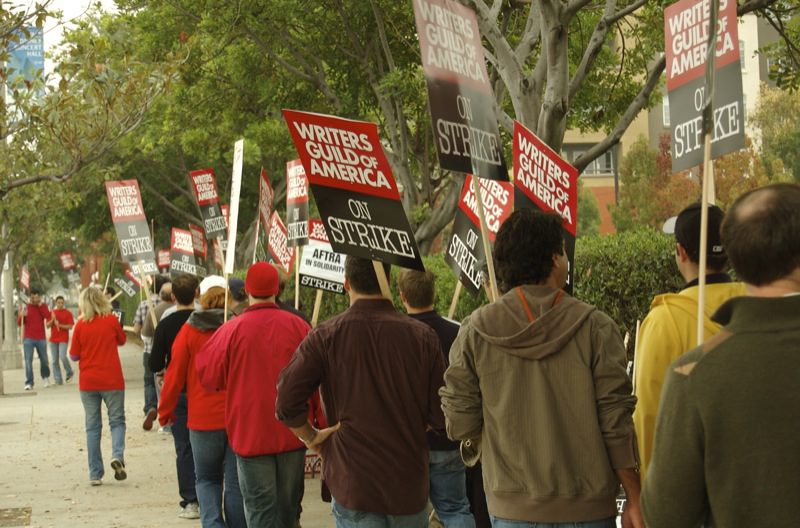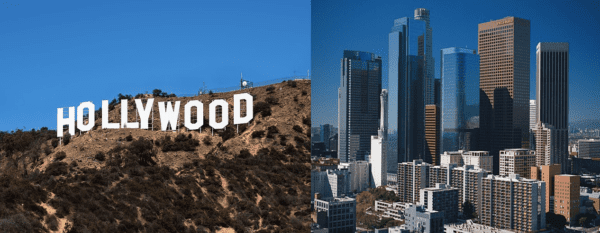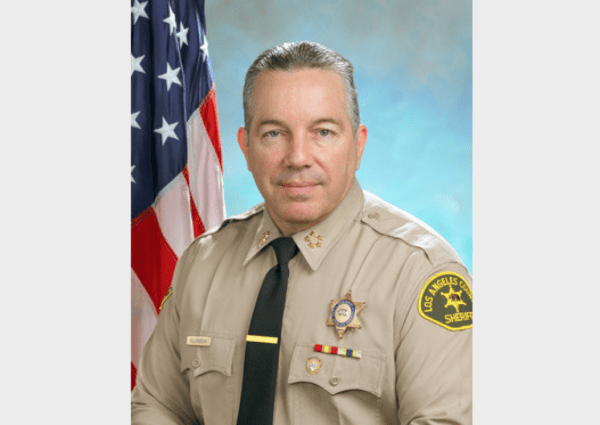Picketing resumed Wednesday outside all the major L.A.- area studios as a strike by the Writers Guild of America that has quickly halted television and other productions entered its second day.
Following Monday night’s announcement by the WGA’s West Coast and East Coast branches that contract talks with the studios had broken down, the union walked off the job when its contract expired at 12:01 a.m. Tuesday, the union’s first strike in 15 years.
Pickets went up beginning Tuesday afternoon — but on Wednesday, the strikers had an earlier call time of 9 a.m., according to the schedule posted on the WGA’s website.
Thousands of picketers marched outside the various studios, often joined by actors and other union members in solidarity. Comedian Jay Leno was spotted outside the Disney studios in Burbank on Tuesday.
The Producers Guild of America issued a statement expressing solidarity with the WGA members and their effort to “seek fair and equitable compensation for their work.
“We believe that everyone working in the film and television industry deserves to be fairly compensated for their work and receive essential benefits,” according to the PGA.
Picketing was being conducted at Amazon’s Studio in Culver City, CBS’ Studio City lot, Television City, The Walt Disney Co.’s corporate headquarters in Burbank, the Fox Studio Lot, Netflix’s Hollywood headquarters, Paramount Studios in Hollywood, Sony Studios in Culver City, Universal Studios and Warner Bros. in Burbank.
The union remains at an impasse with Hollywood studios over a host of labor issues, most notably residuals for streaming content, staffing levels in writing rooms and the use of artificial intelligence.
The strike will disrupt work on hundreds of movies, scripted television series, late-night talk shows and streaming productions. The late- night talk shows felt the most immediate impact, with shows such as “Jimmy Kimmel Live,” which is shot in Hollywood, going dark, along with programs including “The Late Show with Stephen Colbert,” “Late Night with Seth Meyers” and “The Tonight Show Starring Jimmy Fallon.”
Networks aired reruns of those programs Tuesday night.
NBC’s “Saturday Night Live” also quickly fell victim to the strike, canceling this week’s planned live episode hosted by Pete Davidson.
The walkout was also expected to have a wide-ranging economic ripple effect on thousands of crew members and behind-the-scenes workers such as hair- and-makeup artists, transportation employees and food servers — as well as impact businesses near studios such as restaurants that typically serve workers who, for the foreseeable future, will not be reporting to work.
Speaking at the Milken Institute Global Conference in Beverly Hills on Tuesday, Gov. Gavin Newsom said whether directly or indirectly, “every single one of us will be impacted by this (strike).”
“We’re very concerned about what’s going on, because both sides are dug in, and the stakes are high,” Newsom said. “I’ve got to say, I’m sensitive to the concerns of the writers, very, in terms of what streaming’s doing, what the next conversation, AI (artificial intelligence), is doing in this space. This is a very real and existential moment.”
He said his office has not been involved in the labor talks, but will get involved if asked to do so.
Among the issues on the bargaining table, the WGA is pushing for increases in pay and residuals, particularly over streaming content. The guild is specifically calling for higher residual pay for streaming programs that have higher viewership, rather than the existing model that pays a standard rate regardless of a show’s success.
The union is also calling for industry standards on the number of writers assigned to each show, increases in foreign streaming residuals and regulations preventing the use of artificial intelligence technology to write or rewrite any literary material.
According to the union, its latest contract proposal would net writers roughly $429 million per year, while the studios’ latest offer would equate to about $86 million annually.
Studios have pushed back on some union demands, noting that the entire industry is facing budget constraints and pointing to the thousands of layoffs currently underway at the Walt Disney Co. as a prime example. The studios also say writers’ residuals have increased in recent years, powered largely by amounts earned through “new media.”
The Alliance of Motion Picture and Television Producers, which represents the studios, issued a statement at 7:54 p.m. Monday reporting that negotiations concluded Monday without an agreement.
“The AMPTP presented a comprehensive package proposal to the guild last night which included generous increases in compensation for writers as well as improvements in streaming residuals,” the statement said.
“The AMPTP also indicated to the WGA that it is prepared to improve that offer, but was unwilling to do so because of the magnitude of other proposals still on the table that the guild continues to insist upon. The primary sticking points are mandatory staffing and duration of employment, guild proposals that would require a company to staff a show with a certain number of writers for a specified period of time, whether needed or not.
“The AMPTP member companies remain united in their desire to reach a deal that is mutually beneficial to writers and the health and longevity of the industry, and to avoid hardship to the thousands of employees who depend upon the industry for their livelihoods. The AMPTP is willing to engage in discussions with the WGA in an effort to break this logjam.”
The Writers Guild announced at 8:38 p.m. Monday that the Board of Directors of the Writers Guild of America West and Council of the Writers Guild of America East had voted unanimously to call a strike, effective 12:01 a.m. Tuesday.
“Though we negotiated intent on making a fair deal — and though your strike vote gave us the leverage to make some gains — the studios’ responses to our proposals have been wholly insufficient, given the existential crisis writers are facing,” the union wrote in a message to its membership.
“The companies’ behavior has created a gig economy inside a union workforce, and their immovable stance in this negotiation has betrayed a commitment to further devaluing the profession of writing. From their refusal to guarantee any level of weekly employment in episodic television, to the creation of a `day rate’ in comedy variety, to their stonewalling on free work for screenwriters and on AI (artificial intelligence) for all writers, they have closed the door on their labor force and opened the door to writing as an entirely freelance profession.”
WGA members voted overwhelmingly in April to authorize a strike if labor negotiations broke down. According to the WGA, 97.8% of members who cast ballots supported the strike-authorization vote. A total of 9,218 union members cast ballots, representing nearly 79% of the WGA’s membership.
The AMPTP issued a statement at the time that the union had planned to call a strike-authorization vote before negotiations even began, so its approval was “inevitable.”
The WGA last week issued what it calls “strike rules,” which bar union members from doing any writing for studios being struck, or conducting any negotiations on future writing projects. The rules also direct union members to honor all WGA picket lines, perform assigned “strike-support” duties and inform the union of any “strikebreaking activity.”
The WGA last went on strike in 2007-08, remaining off the job for 100 days and grinding Hollywood production to a halt. That strike was precipitated over compensation for what was then termed “new media,” with Internet streaming beginning to reshape the entertainment landscape.
Various estimates from different organizations estimated that the 100- day strike cost the local economy between $2 billion and $3 billion.
Los Angeles Mayor Karen Bass, whose city will likely feel the brunt of the strike’s economic fallout, issued a statement that avoided taking sides in the dispute, but urging a resolution.
“Los Angeles relies on a strong entertainment industry that is the envy of the world while putting Angelenos to work in good, middle-class jobs,” Bass said. “I encourage all sides to come together around an agreement that protects our signature industry and the families it supports.”
Speaking to reporters at an event Tuesday morning, Bass said she plans to reach out to both sides of the labor dispute, although she has not been actively involved to this point.
“I’m hoping that they will reach resolution soon,” she said. “I know that as I understand it they are far apart right now. But I am interested and hopeful that I’ll be able to connect up and at least get a handle on what’s going on. I don’t know whether I’ll be getting involved but I’m certainly going to reach out to all parties.”
Bass played a key role in resolving a recent labor dispute between the Los Angeles Unified School District and thousands of its service workers, who staged a three-day strike before a new contract agreement was reached.
Asked about the strike Tuesday, White House Press Secretary Karine Jean-Pierre said the Biden administration is not playing any role in the labor talks.







